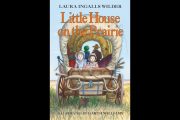
If you favor same-sex “marriage,” “by all means celebrate today’s decision,” wrote Chief Justice John Roberts in his Obergefell v. Hodges (2015) dissent.
“But do not celebrate the Constitution,” he continued. “It had nothing to do with it.”
The Constitution may, though, have everything to do with the reversing of Obergefell. That is, if a new lawsuit identifying the 2015 opinion as “legal fiction” is successful.
ABC News reports on the story:
Kim Davis, the former Kentucky county clerk who was jailed for six days in 2015 after refusing to issue marriage licenses to a gay couple on religious grounds, is appealing a $100,000 jury verdict for emotional damages plus $260,000 for attorneys fees.
In a petition for writ of certiorari filed last month, Davis argues First Amendment protection for free exercise of religion immunizes her from personal liability for the denial of marriage licenses.
More fundamentally, she claims the high court’s decision in Obergefell v Hodges — extending marriage rights for same-sex couples under the 14th Amendment’s due process protections — was “egregiously wrong.”
“The mistake must be corrected,” wrote Davis’ attorney Mathew Staver in the petition. He calls Justice Anthony Kennedy’s majority opinion in Obergefell “legal fiction.”
The petition appears to mark the first time since 2015 that the court has been formally asked to overturn the landmark marriage decision. Davis is seen as one of the only Americans currently with legal standing to bring a challenge to the precedent.
Now, “Lower courts have dismissed Davis’ claims and most legal experts consider her bid a long shot,” informs ABC. The reasoning is that she was acting in her official capacity as an agent of the state. The First Amendment thus does not apply. This may stand at the Supreme Court, too — Obergefell, however, may fall.
Judicial Activism on Steroids
For sure, SCOTUS may find that Davis shirked her duty. Yet the Obergefell majority also shirked its duty, justices made clear in their 2015 dissents. For example, Roberts stated that the decision had a basis only in “the unprincipled tradition of judicial self-aggrandizement.” Late justice Antonin Scalia was equally unsparing, calling the opinion a “judicial Putsch.” In fact, the majority dispensed entirely with sound legal reasoning, wrote Scalia, in favor of “the mystical aphorisms of a fortune cookie.”
Indeed, Kennedy’s majority opinion does bear this judgment out. For instance, he wrote that without what marriage offers, same-sex pairings’
children suffer the stigma of knowing their families are somehow lesser. They also suffer the significant material costs of being raised by unmarried parents, relegated through no fault of their own to a more difficult and uncertain family life. The marriage laws at issue here thus harm and humiliate the children of same-sex couples. And they would not wait — nor should they — for the conventional, state-by-state legislative process to accord them the protection and dignity that marriage offers.
Rhetoric Over Reality
Now, the above may be rhetorically effective, but it is not at all a constitutional argument. Rather, it is “good-ideaism.” There are countless ideas about what are good ideas, too. Some have thought it enlightened to say, “I don’t need a piece of paper to validate my love.” To them, forgoing marriage altogether seems a good idea. Others will say that being raised by same-sex pairs harms children. It’s therefore a good idea to avoid encouraging such an arrangement through social or governmental laws.
Moreover, Kennedy’s logic could also be applied to the children of polygamous relationships and even human-animal “marriages.” (That man and beast cannot produce offspring together is irrelevant to the argument, as same-sex pairs can’t, either.) Those kids would also then be harmed by their “parents” being denied marriage “rights.”
Of course, one or more of the above good-idea conceptions may be correct — or they all may be incorrect. But that’s not the point. It is, instead, that the Constitution doesn’t have a Good Idea provision. It thus is the people’s domain to determine, via their elected representatives or referenda, what is a “good idea.” As for justices, it’s a good idea for them to tame their egos and butt out of what’s none of their business.
Equal Protection?
Then again, the Obergefell majority did cite the 14th Amendment and its Equal Protection clause in their opinion. But does this really apply?
Consider: What if someone told you that homosexuals already have the right to marry? That is, they have a right enter into a conjugal union with an opposite-sex individual, as that’s what marriage is.
Of course, same-sex “marriage” advocates will protest and dispute this definition. This brings us to the universally ignored crux of the matter:
The marriage debate is not about rights.
It is about definitions.
After all, how can you decide if there’s a right to a thing before first determining what that thing is?
Are the courts supposed to say “There is a right to we know not what”?
The marriage debate cannot be about rights. After all, virtually no one — anywhere — disputes that all adult Americans have a right to “marry.” Some disagree, apparently, on what “marriage” is.
And, of course, the Court did not provide any hard and fast definition of “marriage.”
“What, though,” a critic may respond, “if same-sex ‘marriage’ actually existed as a separate and legitimate species of marriage? What if it had its own special definition because it was its own particular thing?”
Even if that eliminated the definitional problem, it isn’t a legally sound argument, and the 14th Amendment doesn’t apply. Why? Because people have equality under the law.
Institutions don’t.
Eye on the Ball
In conclusion, know that Obergefell should be overturned not because it does or doesn’t facilitate a harmful agenda, but because it’s an illegal opinion. This matter isn’t mainly about marriage, as important as that time-tested institution is. It’s about this: Who rules us? Are we a government of, by, and for the people? Or should a small oligarchy of black-robed lawyers determine our fate?
In fact, the real problem here is divorce. That is, too many judges long ago divorced themselves from reason, limitations, and law. In a more ideal world, they’d be forced to reunite with that spouse — or to separate from the bench as well.




